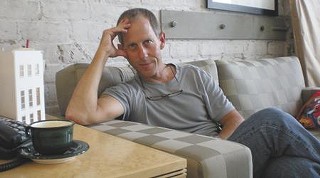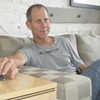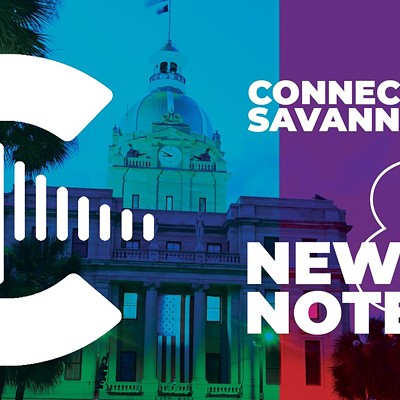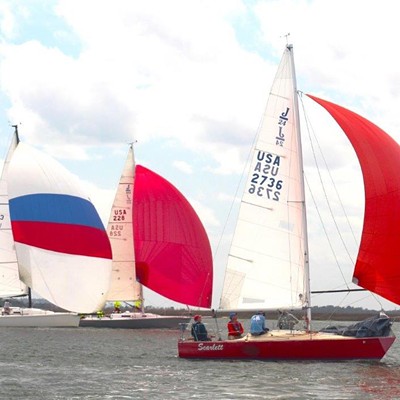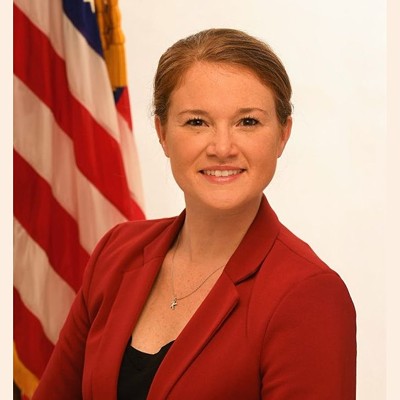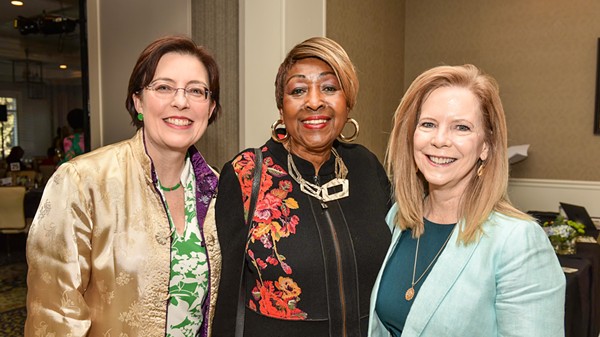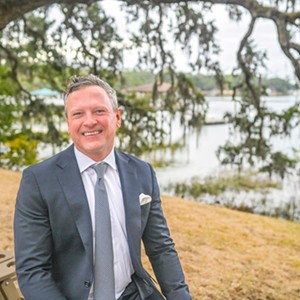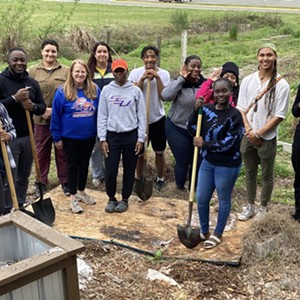For Savannah native Martin Melaver, sustainability is a lot more than just trading in a Hummer for a hybrid. It is a way of life - something that permeates decisions large and small - extending from choosing a dish soap to deciding how to run a business. In his new book, Living Above the Store, Melaver takes his own experiences in the business world and translates them into a road map for how to manage a business in a way that is not only sustainable, but actually restorative - like it helps the economy, community and the environment all at the same time. Melaver recently sat down with Connect Savannah to talk more about the book and the future of sustainability.
What was the inspiration behind Living Above the Store?
Martin Melaver: It was pretty much an accident. I'm one of six to eight people that are out there talking on a regular basis about case studies, more sustainable practices, and more viable practices as a business. Three or four years ago I looked down and there it was. It all kind of came together.
So much of the talk about green and sustainable developments and technologies, is centered around, or gets distracted by, talks about whether global warming is real or not. Would sustainable technologies be further along now if, from the beginning, it had been presented as a market bottom line, and not a social responsibility?
Martin Melaver: You still hear this question, ‘does it make financial sense?' There's still a segment of the population that wonders if it's just a do-good, feel-good type of approach. One of the main focuses of the LEED program and the U.S. Green Building Council is that it pays to go in that direction. I think there's traction with the message. There's always gonna be an element of the general population that's gonna say ‘well, it's just rhetoric.'
On face value, stuff like green building shouldn't be politicized, but in the national dialogue there is a certain amount of politicizing going on where anything that is green is immediately pigeonholed as liberal. To a lot of people today is the eco-movement still just an extension of the hippie movement?
Martin Melaver: I don't see that. You've got the conservation movement in the late 19th century that created the National Park Service. Then you get a second wave that occurs in the 60s, which is very much a confrontational environmentalist versus government and business, resulting in some the best legislation we've ever had in the 1970s. That helped foster a view that you were either business or environmentalist. The sustainability movement of the late 90s and early 21st century has been much more successful in breeching those dividing lines. The bigger challenge today is not where you're identifying with precisely. 60% of this country is strongly religious. There's a strong faith-based environmental movement in this country, and there's also a strong environmental movement. Those two constituencies have yet to talk well to each other. They are politically different, they're socio-demographically different, they're religiously different, but spiritually and ethically - hand in glove. Once the sustainability movement and the faith-based movement that's ecologically driven figure out how to break bread together, now you've got something happening. That's where the real dividing line is today.
Where is the average person supposed to delineate between green-washing and actual sustainable practice? It seems like just as successfully as the sustainability movement has improved how it is packaged and presented to the world, because it's been packaged and presented to the world, that can be co-opted by people who have no interest in sustainable measures, and then you've got chemical companies saying ‘we've got a new green-looking package with a leaf on it for our toxic substance.' Does that end up hurting as much as helping?
Martin Melaver: Is there a proliferation of green claims out in the market place today? Absolutely. Are all those claims valid? No. What do you do about it? For one thing, spreading awareness is a good thing. We'll start there. For Joe and Jane Citizen, being aware of consumption patterns and waste, what it takes for a product to get to you, where it comes from and where it's going - raising the bar of awareness, is, in and of itself, not bad. It's a baby step, but it's got to be gradual. Then moving from awareness to taking responsibility for one's education as it were, drilling down a little bit further. What about these products? I've got two products, two dishwashing detergents in front of me. Both seem to be green. Does it matter? Is there a difference? There's a portion of the population, about 20%, with a lifestyle of health and sustainability, who are gonna drill down into it. For that segment of the marketplace, which will probably stay around that percentage, there are tremendous resources available. If you want to be more active about your choices, the resources are there. The web makes it 1) pretty easy to get reasonably good information and 2) to out misinformation.
Through the filter of the values that you talk about in the book, how is Savannah stacking up? Are we getting some things right? Are we getting some things wrong?
Martin Melaver: On the right, we've been a slow growth economy for 270 years, it's a good thing. We're geographically bounded on two sides, which has limited our growth. That's good. We've been reasonably good stewards of our vast resources like our watersheds, barrier islands, our salt marsh and etc. Not bad. We're very proud of that. Can we do better? Yeah. The areas we need to work on, I think our utility delivery system, and service providers could be a hell of a lot more progressive. That's hurting us. We tend to have a less than multivalent strategy for economic growth and we have been, for a long time, focused on manufacturing. That's been the mantra of the city from an economic standpoint. Recently, it's like we'll take Richard Florida and plop him down in the middle of Savannah and create a knowledge-based economy. What we're lacking is suppleness. Just like any eco-system, a human system thrives by diversity and having a series of economic drivers, one of which should be green collar economy, for lack of a better term. It's very viable. It's very adaptable to various regions. It needs to happen. That needs to be added to the mix. We've got a green plan for Chatham County. It's a good plan. It's been out for about six months. We need to get the leadership of this community to actually implement it, and not just put it in a drawer, which has happened to a lot of green plans around the country. Good intentions, lofty goals, and some viable goals, but no real implementation plan attached to it. I think Savannah has the capacity to be one of the top tier cities in the US. We've missed some golden opportunities, but we're small enough and we're compact enough, and we're one degree of separation from each other, so it's easy to make things happen. We just have to have that will.
For more info about Living Above the Store visit, www.melaverbooks.com

